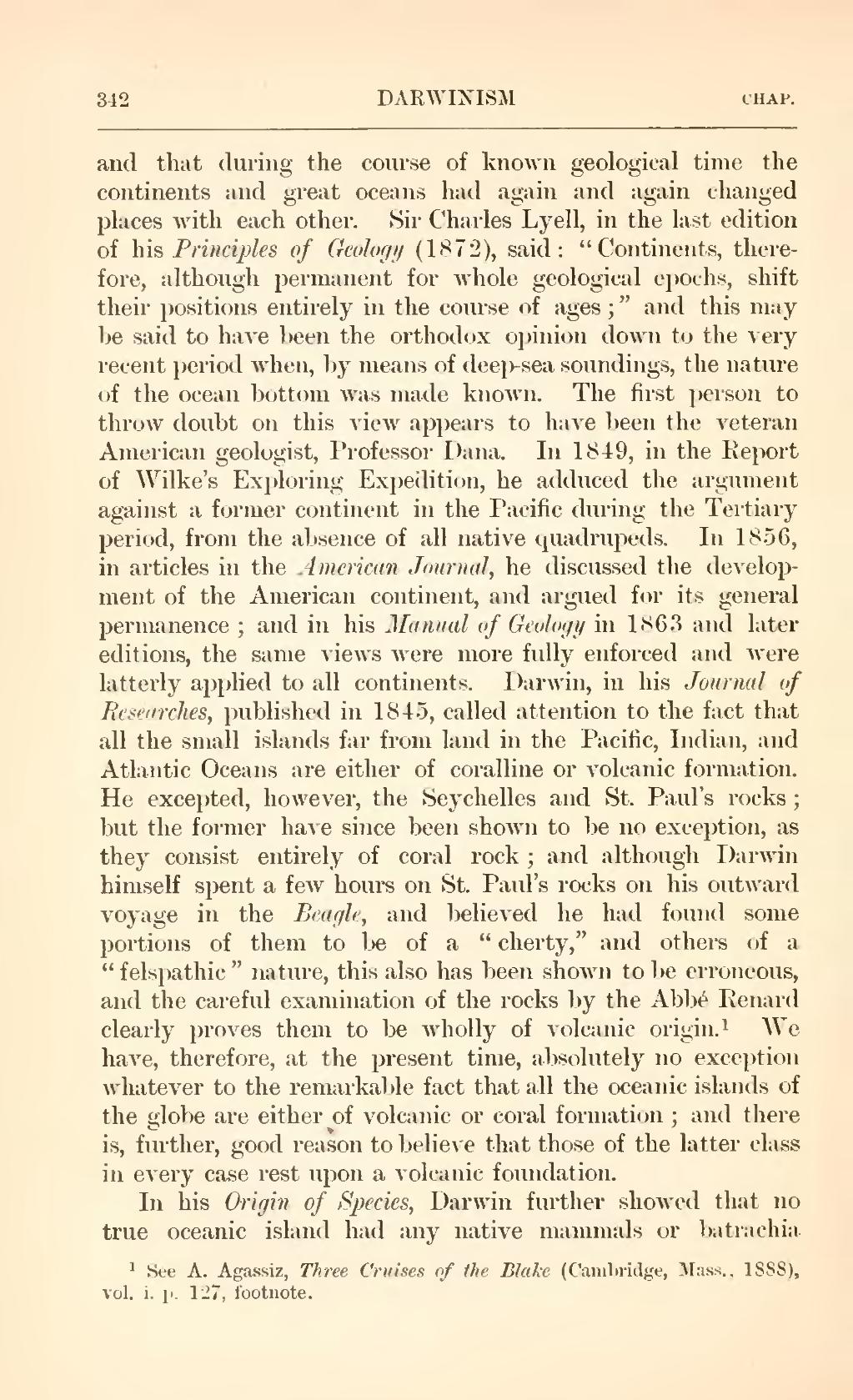and that during the course of known geological time the continents and great oceans had again and again changed places with each other. Sir Charles Lyell, in the last edition of his Principles of Geology (1872), said: "Continents, therefore, although permanent for whole geological epochs, shift their positions entirely in the course of ages;" and this may be said to have been the orthodox opinion down to the very recent period when, by means of deep-sea soundings, the nature of the ocean bottom was made known. The first person to throw doubt on this view appears to have been the veteran American geologist, Professor Dana. In 1849, in the Report of Wilke's Exploring Expedition, he adduced the argument against a former continent in the Pacific during the Tertiary period, from the absence of all native quadrupeds. In 1856, in articles in the American Journal, he discussed the development of the American continent, and argued for its general permanence; and in his Manual of Geology in 1863 and later editions, the same views were more fully enforced and were latterly applied to all continents. Darwin, in his Journal of Researches, published in 1845, called attention to the fact that all the small islands far from land in the Pacific, Indian, and Atlantic Oceans are either of coralline or volcanic formation. He excepted, however, the Seychelles and St. Paul's rocks; but the former have since been shown to be no exception, as they consist entirely of coral rock; and although Darwin himself spent a few hours on St. Paul's rocks on his outward voyage in the Beagle, and believed he had found some portions of them to be of a "cherty," and others of a "felspathic" nature, this also has been shown to be erroneous, and the careful examination of the rocks by the Abbé Renard clearly proves them to be wholly of volcanic origin.[1] We have, therefore, at the present time, absolutely no exception whatever to the remarkable fact that all the oceanic islands of the globe are either of volcanic or coral formation; and there is, further, good reason to believe that those of the latter class in every case rest upon a volcanic foundation.
In his Origin of Species, Darwin further showed that no true oceanic island had any native mammals or batrachia
- ↑ See A. Agassiz, Three Cruises of the Blake (Cambridge, Mass., 1888), vol. 1. p. 127, footnote.
